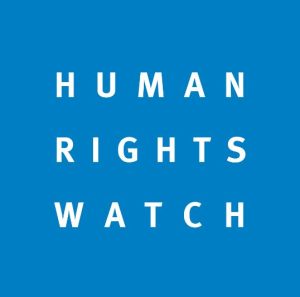Human rights under siege across the globe – new report
Unchecked authoritarian power is creating a sea of misery and eroding human rights across the globe in what is a “fundamental shift in power”, according to a new report from NGO Human Rights Watch.
HRW’s annual World Report lays out a litany of human rights crises in 2022 – from Russian President Vladimir Putin’s brutal attacks on civilians in Ukraine to Chinese leader Xi Jinping’s repression and imprisonment of Uyghurs and the Taliban putting millions of Afghans at risk of starvation while trashing the rights of women.
 The report calls for concerned governments to push back against these abuses by protecting and strengthening the global human rights system, especially when the actions of the major powers fall short.
The report calls for concerned governments to push back against these abuses by protecting and strengthening the global human rights system, especially when the actions of the major powers fall short.
“We have witnessed world leaders cynically trading away human rights obligations and accountability for human rights abusers in exchange for seeming short-term political wins,” the report says.
“US presidential candidate Joe Biden’s principled pledge to make Saudi Arabia a ‘pariah state’ over its human rights record was eviscerated once he was in office and facing high gas prices by his bro-like fist bump with Saudi Arabia’s Mohammed Bin Salman,” said acting HRW XXX Tirana Hassan.
“And the Biden administration, despite its rhetoric about prioritizing democracy and human rights in Asia, has tempered criticism of abuses and increasing authoritarianism in India, Thailand, the Philippines, and elsewhere in the region for security and economic reasons, instead of recognizing that all are linked,” Ms Hassan said.
The report examines the state of human rights in nearly 100 countries.
“Vladimir Putin’s full-scale invasion of Ukraine in February and ensuing atrocities quickly rose to the top of the world’s human rights agenda in 2022,” the report says
“After Ukrainian troops forced the Russian military’s withdrawal from Bucha, north of the capital, Kyiv, the UN found that at least 70 civilians had been the victims of unlawful killings, including summary executions, which are war crimes. This pattern of Russian atrocity has been repeated countless times,” it says.
The armed conflict in northern Ethiopia has received only a tiny fraction of the global attention focused on Ukraine, despite two years of atrocities, including a number of massacres, by the warring parties, the report says.
“In 2020, tensions between Ethiopia’s federal government and Tigray’s regional authorities, the Tigray People’s Liberation Front (TPLF), boiled over into conflict in the Tigray region, with Amhara regional forces and Eritrea’s military supporting the Ethiopian armed forces,” it says.
“The government has heavily restricted access to conflict-affected areas for independent rights investigators and journalists ever since, making scrutiny of abuses as they unfold difficult, even as the conflict spread to the neighbouring Amhara and Afar regions.
“Governments and the UN have condemned the summary killings, widespread sexual violence, and pillage, but have done little else. An ethnic cleansing campaign against the Tigrayan population in Western Tigray resulted in many deaths, sexual violence, mass detention, and the forced displacement of thousands. The government’s effective siege of the Tigray region continued through 2022, denying the civilian population access to food, medicine, and life-saving humanitarian aid, as well as electricity, banking, and communication, in violation of international law.” The report says.
Chinese President Xi Jinping secured a precedent-breaking third term as head of the Chinese Communist Party in October, setting himself up as a “leader for life,” and all but ensuring the Chinese government’s unrelenting hostility to human rights protections will continue.
“Xi has surrounded himself with loyalists and doubled down on building a security state, deepening rights violations across the country,” the report says.
“In the Xinjiang region, Beijing’s mass detention of an estimated one million Uyghurs and other Turkic Muslims—who are subject to torture, political indoctrination, and forced labour—and severe restrictions on rights to religion, expression, and culture for the general population, stand out for their gravity, scale, and cruelty. The UN found that violations in Xinjiang could amount to crimes against humanity, echoing the findings of Human Rights Watch and other human rights groups.
On a positive note, the report says Pacific Island nations as a bloc have demanded more ambitious emissions reductions from those countries that are polluting the most, while Vanuatu leads an effort to put the adverse effects of climate change before the International Court of Justice for their own sake—and ours.
And while the US Supreme Court struck down 50 years of federal protection for reproductive rights, the “green wave” of abortion-rights expansions in Latin America—notably Argentina, Colombia, and Mexico—offers a compelling counter-narrative, the report says.
“This is the overarching lesson of our ever-more disrupted world: we need to reimagine how power in the world is exercised, and that all governments not only have the opportunity but the responsibility to take action to protect human rights within and beyond their borders,” the report says.
In Australia, the report says there have been improvements in human rights since the election of Labor Prime Minister Anthony Albanese.
“However, many rights concerns remain, such as the significant overrepresentation of First Nations people in the criminal justice system and mandatory offshore processing and “turn-backs” of asylum seekers who arrive by boat,” the report says.
See the full report here: World Report 2023 | Human Rights Watch (hrw.org)












